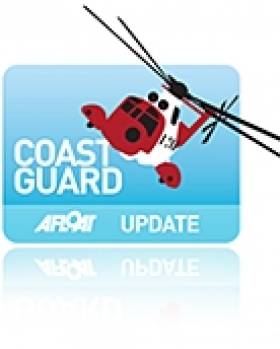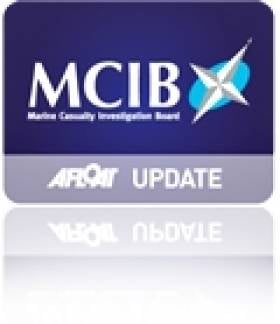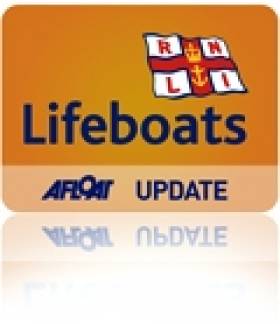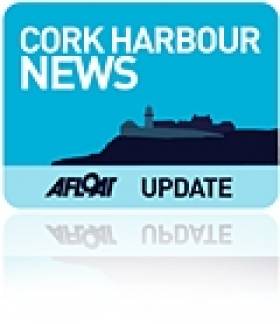Displaying items by tag: VHF Radio
Missing Bermuda Yacht Arrives Safely in Co Kerry
A yacht that was reported missing in the Atlantic between Bermuda and Ireland sailed safely into port in Co Kerry this afternoon.
As previously reported on Afloat.ie, the Golden Eagle has been at the centre of an air and sea search operation since failing to arrive at its expected destination of Crookhaven in Co Cork on 15 September.
The yacht - crewed by a 69-year-old Norwegian and a 60-year-old New Zealander - had been out of radio contact since leaving Bermuda in mid August.
But a spokesperson for the Irish Coast Guard has since revealed that the men intentionally turned off their handheld VHF radio to save battery power until they were close to port.
The boat dropped anchor in Portmagee, Co Kerry at 3pm this afternoon, reporting only minor damage to its sails and rigging due to adverse weather which slowed their progress.
More from RTE here.
Flares No Help to Mayo Fishermen Stranded at Sea - MCIB Report
Two Mayo fishermen stranded at sea after their boat capsized were not assisted after they used flares, a Marine Casualty Investigation Board (MCIB) report has found.
The report, released earlier this week, recounted that the 33m crabber Léim an Bhradán had set out from Porturlin in Ballina on the morning of Saturday 30 October last on a routine fishing trip to retrieve and reset crab and lobster pots some 12 to 15 miles offshore.
The vessel was manned by skipper John O’Donnell, aged 18 at the time, and crew Nathan Flannery, in his 20s, both young men but with many years of fishing experience between them.
At some time between 1pm and 1.45pm, after having successfully hauled and re-shot one tow of pots, a second tow, in the process of being hauled, was partially aboard being emptied and re-baited.
The vessel was listing slightly to starboard due to the pots being hauled over that side when a large wave broke over the starboard quarter and flooded the working deck.
This caused the vessel to list further to starboard, allowing more water over the side and causing the stacked pots and boxes to shift, increasing the angle of the list and throwing both men into the water before the boat capsized and sank rapidly.
The boat's canister-type liferaft, which was not secured to the vessel but stored in a cradle on top of the wheelhouse, floated to the surface with a life ring. O’Donnell and Flannery managed to inflate the raft and climb aboard around 2pm, after some difficulties in operating the gas inflation cannister and releasing the raft from its securing straps.
The men then opened the SOLAS B equipment pack stored on the liferaft and released two parachute flares, 20 minutes apart, with no response. At around 3pm the pair spotted an Irish Coast Guard helicopter and released an orange smoke signal, but the chopper did not respond. It later transpired that this aircraft was the Sligo-based coastguard helicopter on a training exercise.
Several hours later, the alarm was raised ashore when the Léim an Bhradán had not returned to port. A rescue helicopter and lifeboat were tasked to the scene before midnight and the liferaft was located just after 1.30am.
O’Donnell and Flannery, who had earlier donned thermal suits to protect from the cold, were picked up and brought ashore by the lifeboat. Neither was injured in the incident.
The MCIB report found that had the lifeboat been secured to the vessel, it would have been in a position to inflate correctly as per its design.
It also found that had the EPIRB emergency beacon been mounted to a 'float free' bracket outside the wheelhouse, rather than stored inside, it would have floated to the surface and activated automatically, notifying the coast guard immediately.
Neither skipper nor crew was in possession of the boat's handheld VHF set, the report noted, which hampered their ability to contact any nearby vessels for assistance.
Crippled Sea Angling Boat Not So Crafty
Three anglers were recovered by the Kilmore Quay lifeboat last weekend after an engine failure on their vessel close to the Saltee Islands.
SAR Ireland reports that three males were on board the cheekily named Crafty Bitch on a fishing expedition when they got into difficulty.
They were forced to raise the alarm by phone as there was no VHF radio on board. The absence of radio and GPS made locating the vessel "very difficult", but the boat was eventually found after some delay and towed to port. All on board were wearing lifejackets.
Boat anglers are reminded to ensure they have at a bare minimum a VHF radio and GPS locator on board, as mobile phone signals can be unreliable offshore.
Cruising Sailor Rescued off Cork Harbour
A sailor who got into difficulty cruising from Wales to the Canary Islands was rescued and brought to safety in Cork Harbour yesterday.
The 10-metre yacht hit poor weather conditions near the Pollock Rock east of Power Head and lost the use of its VHF radio. The skipper was heading for Cork Harbour when he also encountered steering problems.
A passing fishing boat lent assistance and contacted the Coastguard. The vessel was towed to Crosshaven by Ballycotton lifeboat.
Related Safety posts
RNLI Lifeboats in Ireland
Safety News
Rescue News from RNLI Lifeboats in Ireland
Coast Guard News from Ireland
Water Safety News from Ireland
Marine Casualty Investigation Board News
Marine Warnings

































































